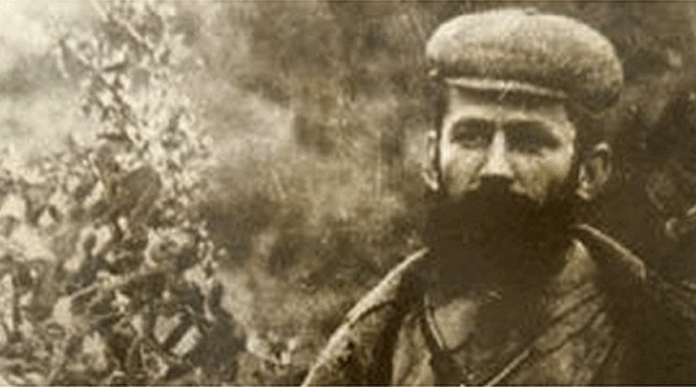December 23 marks the death of the Macedonian revolutionary Damjan – Damé Gruev. One of the founders and ideological leaders of the revolutionary struggle for the independence of Macedonia died a hero’s death, fighting against the Ottoman army on the mountain peak Petlec, near the village Rusinovo in the Berovo region.
Gruev was born on 19 January 1871 in the village Smilevo, located in the Demir Hisar region. Dame Gruev’s family has Miyak origins. His ancestors had originated from the Debar region in western Macedonia. They were part of a migration wave at the end of the 18 century which was caused by the armed robbery of livestock and violence committed by Albanian gangs, who unlike the Macedonians, were permitted by the Ottoman government to bear firearms.
His native village subsequently earned a special place in Macedonian history for being the seat of the Congress of Smilevo in 1903. It was between May 2 and 7 when VMRO delegates decided to initiate the Ilinden uprising that took place three months later. Dame Gruev was the appointed representative of the organization’s decision-making body, the Central Committee. Gruev’s revolutionary intentions became visible since his teenage years.
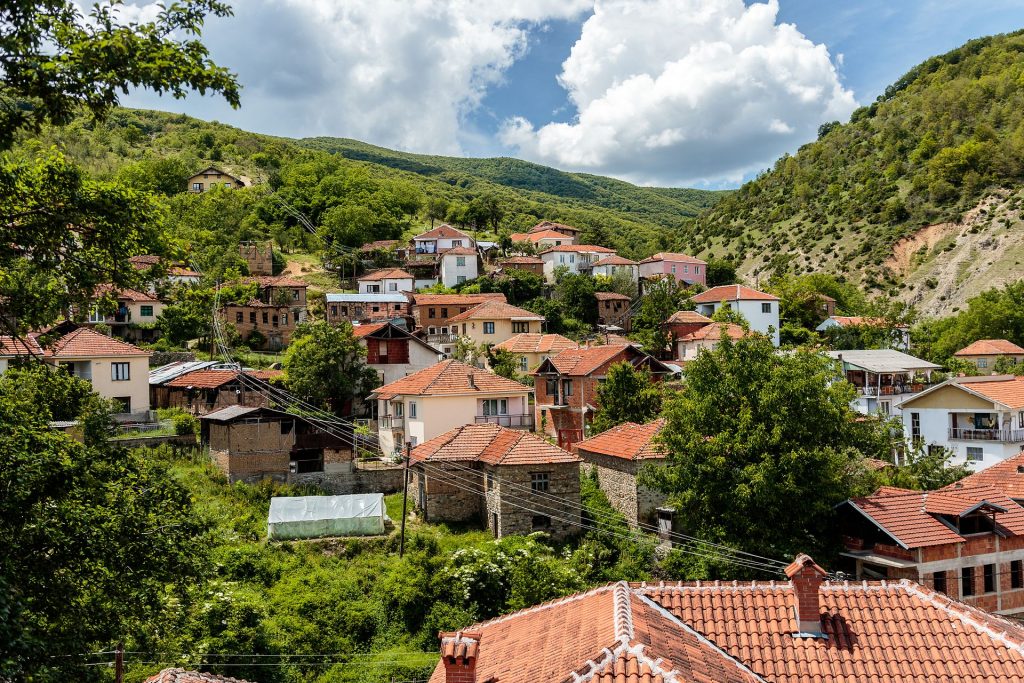
The Gruev family wanted their son to have an education. He studied elementary school in Smilevo and in Bitola and attended Saints Cyril and Methodius Exarchical Gymnasium in Salonika (Thessaloniki) where he completed his fifth and sixth years. From there he moved to Belgrade where he studied for one year and several months.
During his educational journey Dame had sensed that the students are subjects to foreign propaganda. The elementary schools in Smilevo and Bitola were part of the system of parochial schools that was controlled by the Bulgarian Exarchy.
The schools had come in place of the native Macedonian religious schools that were forbidden following the annulment of the Church of Ohrid by the Ottoman Sultan in 1762.
The semi-religious schools which were nevertheless founded to instill the young with a sense of loyalty to the Bulgarian church and by that extension, loyalty to the cause for a Bulgarian nation, which had begun to materialize following the Russo-Turkish war of 1877-1878.
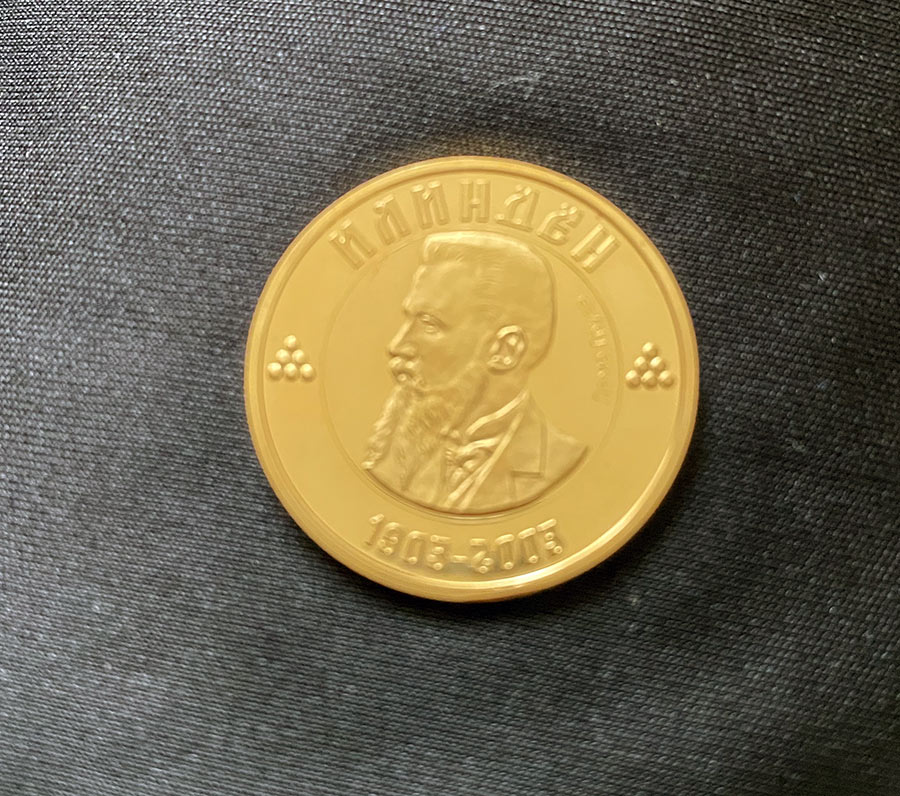
Dame Gruev had participated in two separate student rebellions – one in the Exarchical Gymnasium in Salonika and the other in the Gymnasium in Belgrade, respectively, against the Bulgarian and Serbian propaganda in Macedonia.
In a further effort to advance the Macedonian cause for national freedom, Gruev founded the Association of Macedonian Students at the University of Sofia in 1890. The goals of the association were to liberate Macedonia from the Ottoman yoke, to form a revolutionary organization in Macedonia, to expand the group of Macedonian patriots, and to combat the denationalizing propaganda by publishing a magazine and distributing it among Macedonians.
The Association disbanded following the killing of the Bulgarian minister of finance, however, it hasn’t been concluded whether any of its members were somehow implicated in the killing. Nevertheless, Dame Gruev went on to become part of the Macedonian literary society of 1892 which became known as the Vineyard Movement (Lozarsko Dvizhenie) after its publication “The Vine”.
As part of this movement, Gruev befriended Macedonian revolutionaries like Gotse Delchev, Gjorche Petrov, Hristo Matov, Petar Poparsov, Vojdan Chernodrinski and others. Interestingly enough, one of the founding ideology of the movement was to restore the Ancient Macedonian kingdom.
Following the release of six magazines, pressure by agents of the Bulgarian government and public attacks in literary magazines in Bulgaria and Greece and the execution of Aleksandar Karagjulev by hanging, the Government of Bulgaria succeeded in breaking up the organization.
The Vineyard Movement was crucial in initiating the Macedonian Revolutionary Organization after one of its members, Petar Pop Arsov published a brochure with the organization’s unofficial program.
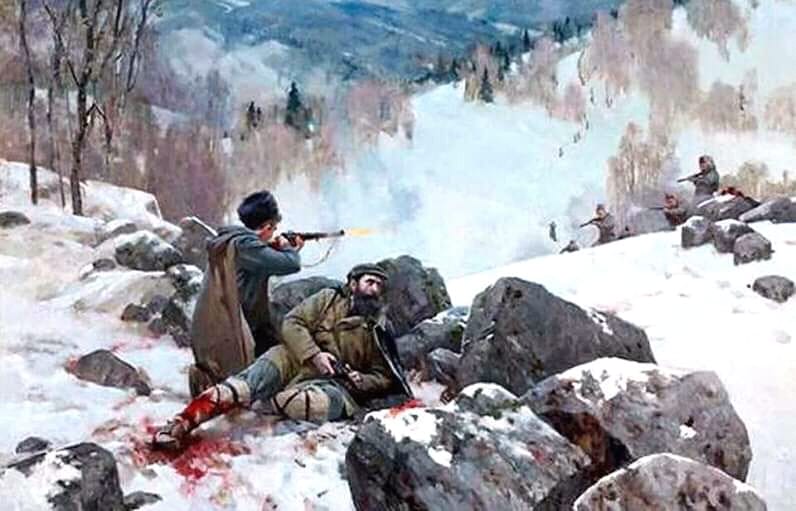
In 1893, Damjan-Dame Gruev decided to become a teacher among the Macedonians. He took on a job at the Exarchical school in Prilep. From there he moved to Solun and work as an assistant in the printing shop of Kone Samardziev. In Solun (Thessaloniki), Dame became the first secretary of the Central Committee of the revolutionary organization.
From there on Gruev’s life becomes filled with excitement and danger. He was imprisoned by the Ottoman government, traveled across all of Macedonia, and became a hostage to an armed band that was funded by the Serbian government to combat the revolutionary movement for Macedonian independence.
During the Smilevo Congress, Gruev was for the raising of the uprising – which Delchev had been opposing due to lack of weapons and military preparedness. Gruev is famous for telling an English journalist that “A horrible end is better than horror without end” in justifying the cause of the uprising.
The years following the uprising, Dame Gruev spent time with diplomatic work, as he was one of the most engaged spokespersons for the Macedonian cause, prior to and following the peace treaties that were supposed to give rights to the Macedonians and protect the people from foreign hostilities.
Gruev continued his revolutionary mission until his death. on 23 December 1906 he met with fellow revolutionaries in a house in the village Rusinovo near Berovo, while on his way to a Macedonian congress in Sofia, the capitol of Bulgaria. Gruev made the mistake not to appoint wards to secure the house and the village. Few Ottoman soldiers had chanced upon the place and opened fire on the revolutionaries.
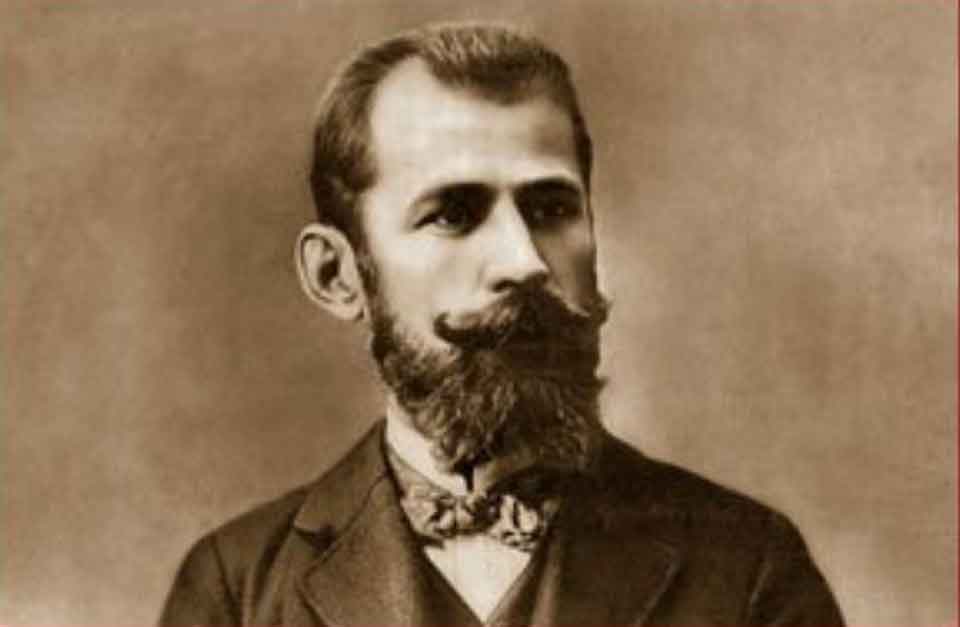
Dame had taken a bullet but succeeded in escaping the premises during the shootout, together with two komitas. His bleeding wound had left a trail, which the Ottoman units, now greater in number, began to follow his tracks to the steep and rocky mountain peak Petlec.
There, sensing the arrival of the Turks, Dame ordered the young Grigor Mitov Krapev to evacuate. The oncoming shootout resulted in the death of Gruev. The next day, the Ottoman commander ordered his body to be buried together with those of the other two komitas that were killed the previous day.
Each year on December 23, patriots from around Macedonia pay tribute on his grave in Rusinovo and on the place of his death on Petlec. Dame Gruev’s name has been also immortalized in the Macedonian national anthem.


